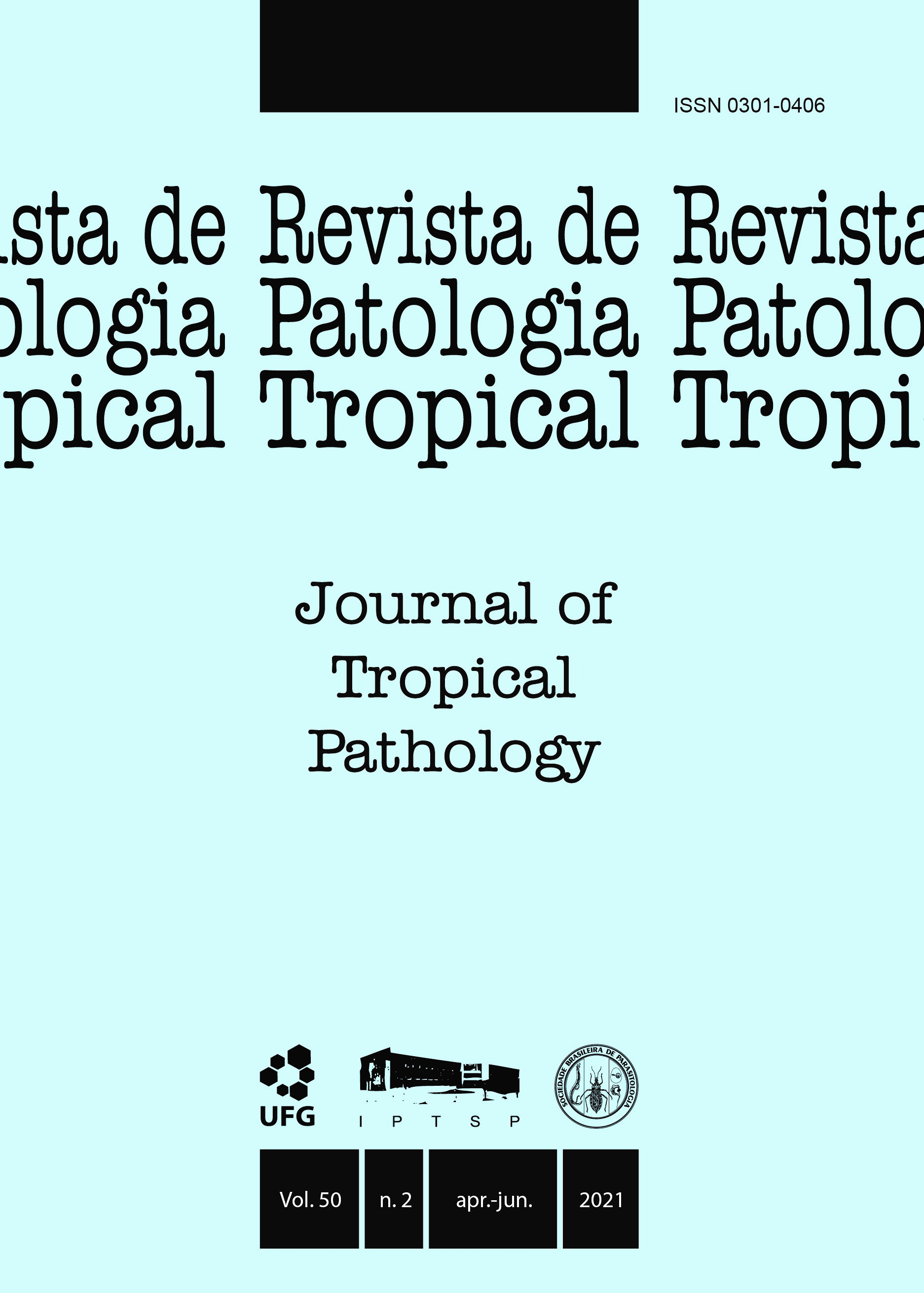Enteric parasites and socio-epidemiological variables in an academic community
DOI:
https://doi.org/10.5216/rpt.v50i2.67673Abstract
Studies linking human health to environmental conditions are essential since parasitic diseases are connected to environmental and sanitary aspects. This study identified the prevalence of enteric parasites in an academic community in the municipality of Santo Antônio de Jesus, Bahia, Brazil. The purpose was to determine the existence, or not, of links between infections and socio-epidemiological variables, such as personal hygiene habits, the presence of sewage systems and the environment. Participants answered a questionnaire and received universal collectors for fecal samples. Spontaneous sedimentation methods and Rugai were used for diagnosis. One hundred twenty-one samples were analyzed, in which a 38.8% parasite prevalence was detected as well as a 61.7% rate of monoparasitism, as well as a predominance of protozoa Endolimax nana (78.7%) and Giardia duodenalis (21.3%). Among parasitized individuals, 97.9% lived in the Recôncavo Baiano region. The following statistical significance stands out in the findings, with p<0.05: individuals who had already bathed in the local river were more likely to be parasitized than those who had not (p = 0.034) and individuals who washed their hands more frequently before meals proved to be less prone to intestinal parasitic infections (p = 0.018). Results evidenced the presence of enteric parasites in a number of participants in spite of their being university students. The socio-epidemiological variables analyzed brought to light characteristics that favor the establishment of the epidemiological infection triad, such as improper packaging of household waste on disposal and no records of regular domestic water tank cleaning.
KEY WORDS: Enteric parasites; environment; diagnosis; health education.
Downloads
Downloads
Published
How to Cite
Issue
Section
License
The manuscript submission must be accompanied by a letter signed by all authors stating the full name and email address, confirming that the material has not been published or is under consideration for publication elsewhere, and agreeing to transfer copyright in all media and formats for Journal of Tropical Pathology. The authors will not be paid for published articles. They are solely responsible for the content of those articles, even if the Editor holds the right to adjust them to the norms of the journal.
The reviewers will not be paid for the peer review process.

